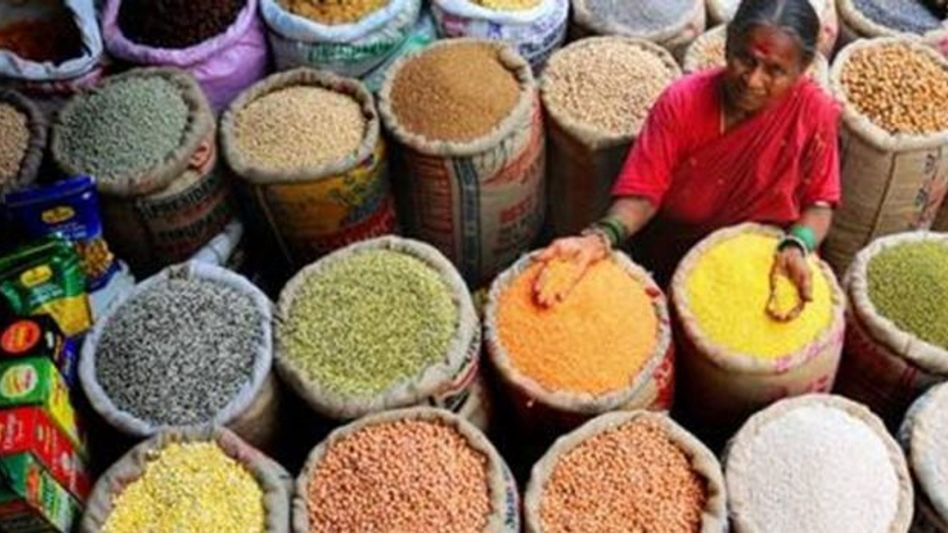Are they boon or bane?
 essential
essentialCentral legislation ‘Essential Commodities Act, 1955’ was enacted with a main objective to prohibit hoarding and black marketing of essential commodities which may obstruct the supply and have an adverse effect on the normal life of the people. The other objective was to provide the essential commodities to its consumers at fair prices. The prices of essential commodities are dependent on various diversified uncontrolled factors viz. climatic conditions, region, marketing etc., and therefore there was a need for such an enactment.
Restrictions were stipulated under the Act and the control orders were issued by the respective States in relation to stocking, pricing etc. We have been witnessing the fluctuation in prices in relation to essential commodities as well as other agriculture produce such as onions, potatoes etc., causing huge loss to the farmers and in such circumstances the control orders were being invoked by the States to minimise the financial damage caused to the farmers.
Now the Centre has brought in two Bills namely (1) The Farmers (Empowerment & Protection) Agreement on Price Assurance and Farm Services Bill, 2020 and (2) The Farmers Produce Trade & Commerce (Promotion & Facilitation) Bill, 2020. The former relates to production and purchase of the farm produce and the later relates to selling / trading the produce in the market.
A reading of The Farmers (Empowerment & Protection) Agreement on Price Assurance and Farm Services Bill, 2020 shows that the same is being enacted to protect and empower the farmers to engage with agri-business firms, processors, wholesalers, exporters, large retailers for farm services and sale of future farming produce at a mutually agreed remunerative price framework in a fair and transparent manner. A reading of the provisions shows that the farming produce include all the agriculture produce, foodstuffs, cereals, cattle fodder, cotton seeds etc. The farm services under the Bill includes even provision for supply of seed, feed, fodder inputs for farming etc., by the wholesaler or retailer who is called as ‘sponsor’ under an agreement. This shows that the entire agriculture produce of a farmer is under the control of the business man / corporate bodies who are called as ‘sponsor’. It is also relevant to mention here that the proposed Act specifically overrides Essential Commodities Act, 1955 and all the State control orders and any other laws related to stock limit etc., under Sec.7 of the Bill. The ‘sponsor’ who is providing inputs for the farmer has an overall control over the production, stocking etc. Since the proposed Act overrides the Essential Commodities Act, 1955, there is no limit in relation to the number of agreements that may be entered into by the ‘sponsor’ with various farmers. There is a possibility of single ‘sponsor’ monopolising the entire control of farming and the produce.
The next stage would be with regard to the trade and marketing by the farmer. The Farmers Produce Trade and Commerce (Promotion and Facilitation) Bill, 2020 has been introduced with a main objective to enable the farmers and the traders to enjoy the freedom of choice relating to sale and purchase of farmers produce. The word ‘farmer’ has been defined as an individual engaged in the production of farmers produce and includes farmers produce organisation. The farmer produce organisation is defined as an association or a group of farmers. However the inter-state and intra-state trade have included only the ‘trader’ within their ambit. Which means only a trader can involve in inter-state and intra-state trade. Trader has been defined as a person who buys farmers produce. It does not include a farmer. Therefore the sum and substance of the proposed Act is that the inter-state trade or intra-state trade can be conducted by a trader who buys the farmer produce.
Also Read: Deepor Beel: High Time to Buckle up
The Farmers (Empowerment & Protection) Agreement on Price Assurance and Farm Services Bill, 2020 ends with the purchase of the stock by ‘sponsor’ who enters into a farming agreement with the farmer at the production level. The Farmers Produce Trade & Commerce (Promotion & Facilitation) Bill, 2020 speaks with regard to the trade of the farmers produce and spells out that the trader would be involved in the inter and intra state trade. Neither the word ‘trader’ in the said Bill includes the ‘sponsor’ under The Farmers (Empowerment & Protection) Agreement on Price Assurance and Farm Services Bill, 2020 nor the definition ‘sponsor’ includes the ‘trader’ under The Farmers Produce Trade & Commerce (Promotion & Facilitation) Bill, 2020. Both the Bills do not specify as to how the commodity will be dealt with after the produce is taken over by the ‘sponsor’. May be the ‘sponsor’ has to become a trader under The Farmers Produce Trade & Commerce (Promotion & Facilitation) Bill, 2020 but the Bills are silent.
Though it appears from reading of the both the Bills that the same are being legislated for the benefit of farmers in relation to the farming activity, price, marketing etc., in reality the business man / corporate bodies / middlemen may take over the entire control of the Essential Commodities and there cannot be any regulation in relation to hoarding, black marketing etc. The said lacuna has to be addressed by the Central government and make suitable amendments to protect the interest of the farmers and the consumers.
Sec.6 of The Farmers Produce Trade & Commerce (Promotion & Facilitation) Bill stipulates that no marketing fee or cess levy, by whatever name called under any State Agriculture Marketing Committee Act or any other State law shall be levied on farmer or trader or electronic trading and transaction platform for trade and commerce in a trade area. The trade area has been defined as a place where the farmers produce can be collected. Obviously the ‘sponsor’ under The Farmers (Empowerment & Protection) Agreement on Price Assurance and Farm Services Bill, 2020 would be in control of the farm produce and he may be acting as a ‘trader’ who would utilise the trade area for the purpose of his business. In the process the State governments shall lose revenue which otherwise would be available by way of market fee, levy etc. Such a provision may adversely affect the revenue of the States. Sec.8 of the said Act of The Farmers Produce Trade & Commerce (Promotion & Facilitation) Bill, 2020 stipulates dispute resolution but speaks with regard to a dispute arising out of the transaction between the farmer and a trader under Sec.4. Whereas the ‘farmer’ may not have any scope to offer his produce for sale in cases wherein he enters into an agreement with the ‘sponsor’ under The Farmers (Empowerment & Protection) Agreement on Price Assurance and Farm Services Bill, 2020.
When both the Bills are independently understood, the farmers who would not enter into an agreement with any ‘sponsor’ for the purpose of production may be benefitted in the course of time. But in the light of the businessmen / sponsor entering into the domain of the agriculture production, whether the farmer would be benefitted or not is the question.
BY- Chittarvu Raghu, Advocate
Readers like you make Inside Northeast’s work possible
To support our brand of fearless and investigative journalism, support us HERE.
Download:
The Inside Northeast app HERE for News, Views, and Reviews from Northeast India.
Do keep following us for news on-the-go. We deliver the Northeast.
Copyright©2026 Living Media India Limited. For reprint rights: Syndications Today









